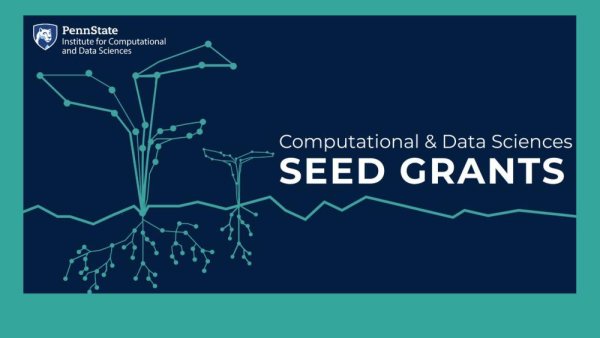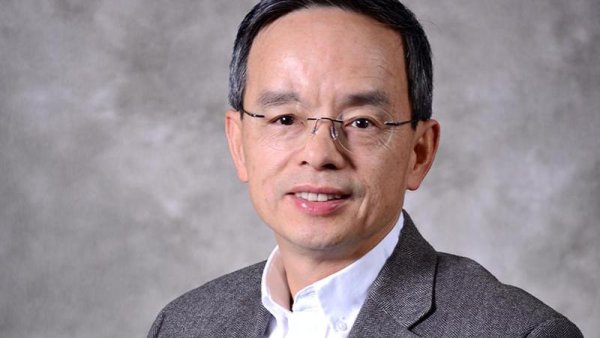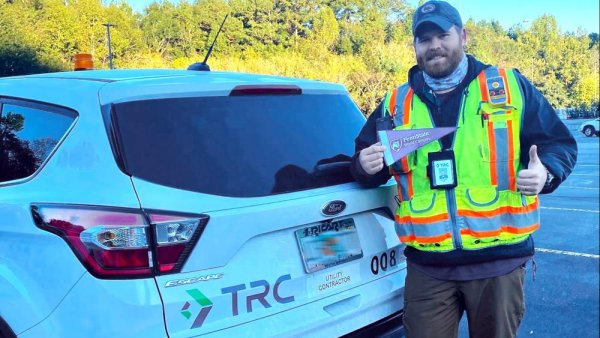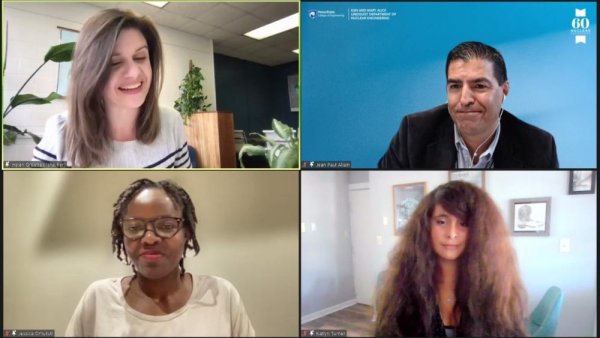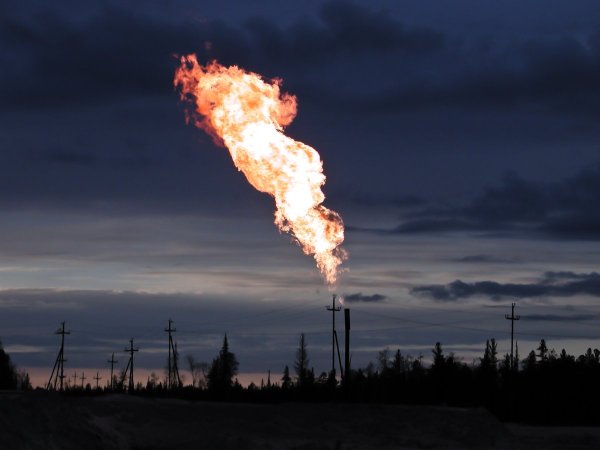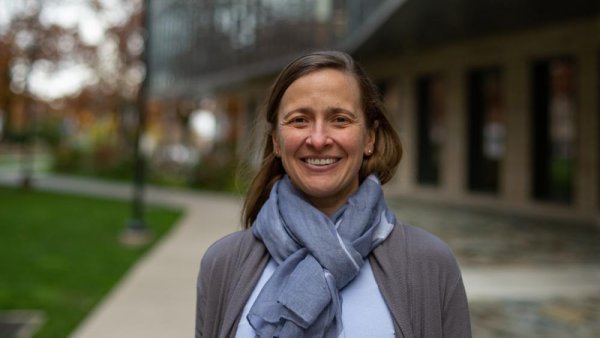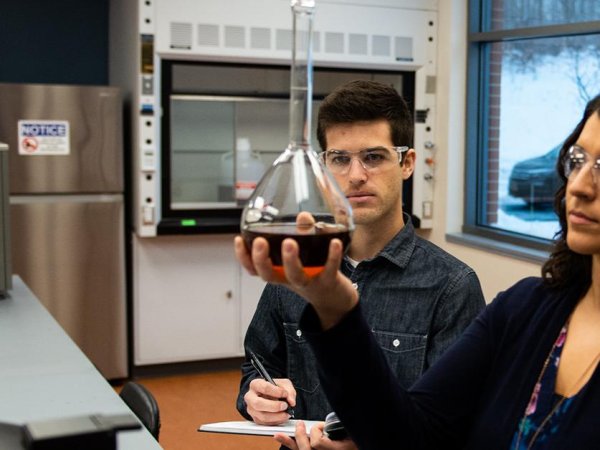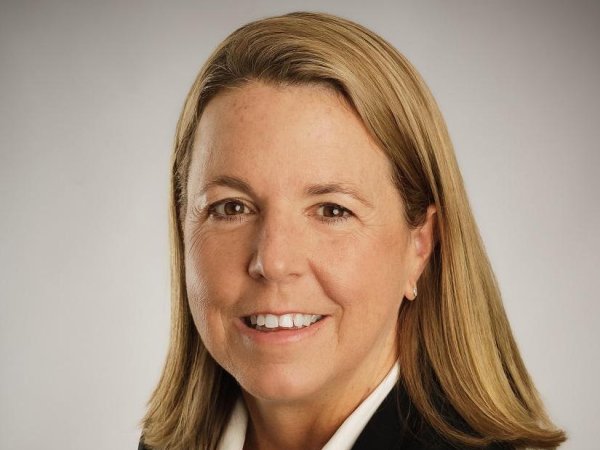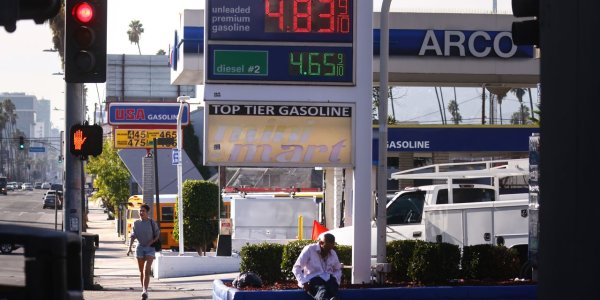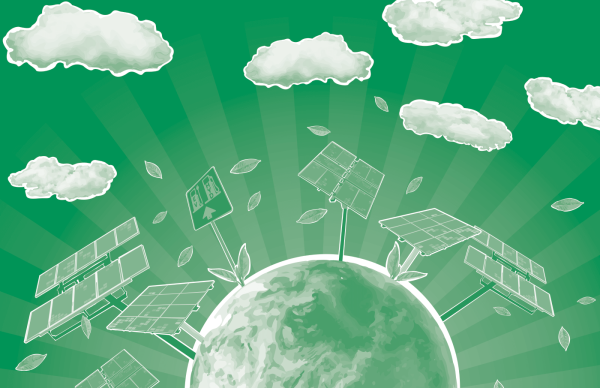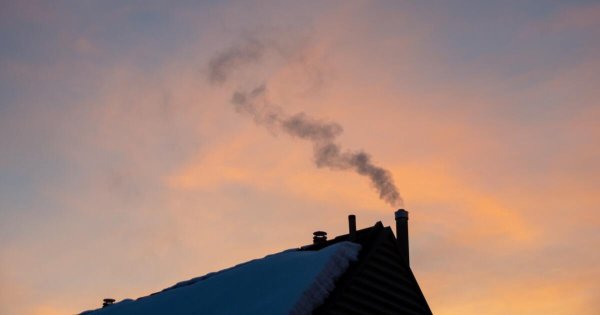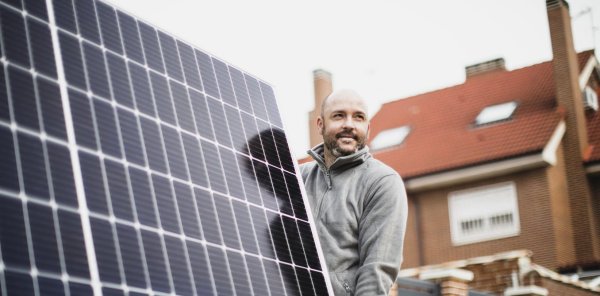Institute accepting seed grant proposals for AI, computational science projects
| psu.edu
Penn State faculty from all campuses can apply now through Jan. 23, 2022, for seed grants through the Institute for Computational and Data Sciences. Special consideration will be given to projects focusing on artificial intelligence, predictive modeling, AI for computing infrastructure, human-centered AI or responsible data science.
Professor named fellow of the Minerals, Metals and Materials Society
| psu.edu
Zi-Kui Liu, Dorothy Pate Enright Professor of Materials Science and Engineering, has been named a fellow of the Minerals, Metals and Materials Society, the society's highest honor.
Energy and sustainability policy student balances education, disaster response
| psu.edu
When the storms roll in, Alex Swithers’ professors know he might be a little late on his assignments. That’s just a fact of life for the 32-year-old Penn State World Campus student majoring in energy and sustainability policy while simultaneously working as a first responder for areas devastated by natural disasters and raising a young family.
ICDS Fall Symposium speakers offer insights on digital fairness
| psu.edu
Experts from industry and academia offered their insights and led panel discussions on ways to improve digital fairness at the recent Institute for Computational and Data Sciences Fall Symposium.
The world of energy is changing before our eyes
| by Kenneth Davis
The world of energy generation is changing. The industry is more aware of climate change and interested in renewables. Researchers are determined to find new solutions and build them collectively. And students are passionate about learning and impacting the future. In short, there is hope.
Grant enables research into catalysts for more sustainable hydrogen production
| psu.edu
Lauren Greenlee, associate professor of chemical engineering, received a $379,998 grant from the National Science Foundation. Collaborating with international researchers, she aims to better understand and ultimately improve electrolysis, or the process of using electricity to split water, using an iron-containing compound as a catalyst to accelerate the process.
Penn State Behrend opens new major in interdisciplinary science and business
| psu.edu
A new major at Penn State Behrend will prepare students for careers in the business, sales and marketing offices of science-based organizations. "Our graduates will have a foundation in key scientific concepts, plus have the skills needed to handle the business aspects of their roles," said Michael Rutter, co-chair of the new program.
College of Ag Sciences professor elected president of professional association
| psu.edu
Karen Fisher-Vanden, professor of environmental and resource economics and public policy in Penn State’s College of Agricultural Sciences, has been elected president of the Association of Environmental and Resource Economists.
Will Biden administration releasing 50 million barrels of oil lower gas prices? Don't hold your breath
| marketwatch.com
President Joe Biden released 50 million barrels of oil from the country’s strategic petroleum reserve in a bid to fight the rising costs that are eating away at household budgets for everything from energy to groceries. IEE cofunded faculty member Seth Blumsack is quoted in this story.
Prepared to make an impact
| magazine.smeal.psu.edu
The coursework he did this past spring convinced Penn State Smeal MBA student Bitrus Baba that clean energy is the wave of the future — and that wave is quickly breaking into the present.
A global energy crunch, higher prices and what it all means for keeping Vermont homes warm this winter
| vpr.org
IEE cofunded faculty member Seth Blumsack appears in this story from Vermont Public Radio. A global energy crunch has been unfolding for months now, driving up the cost of oil and natural gas and creating an expensive problem for the roughly 60% of Vermont households that rely on fuel oil, propane, natural gas or other fossil fuels to heat their homes.
Americans support climate change policies, especially those that give them incentives and clean up the energy supply
| theconversation.com
A set of studies found people prefer incentives to disincentives, especially for individuals but also for businesses. They have views on clean energy and efficiency, too.

